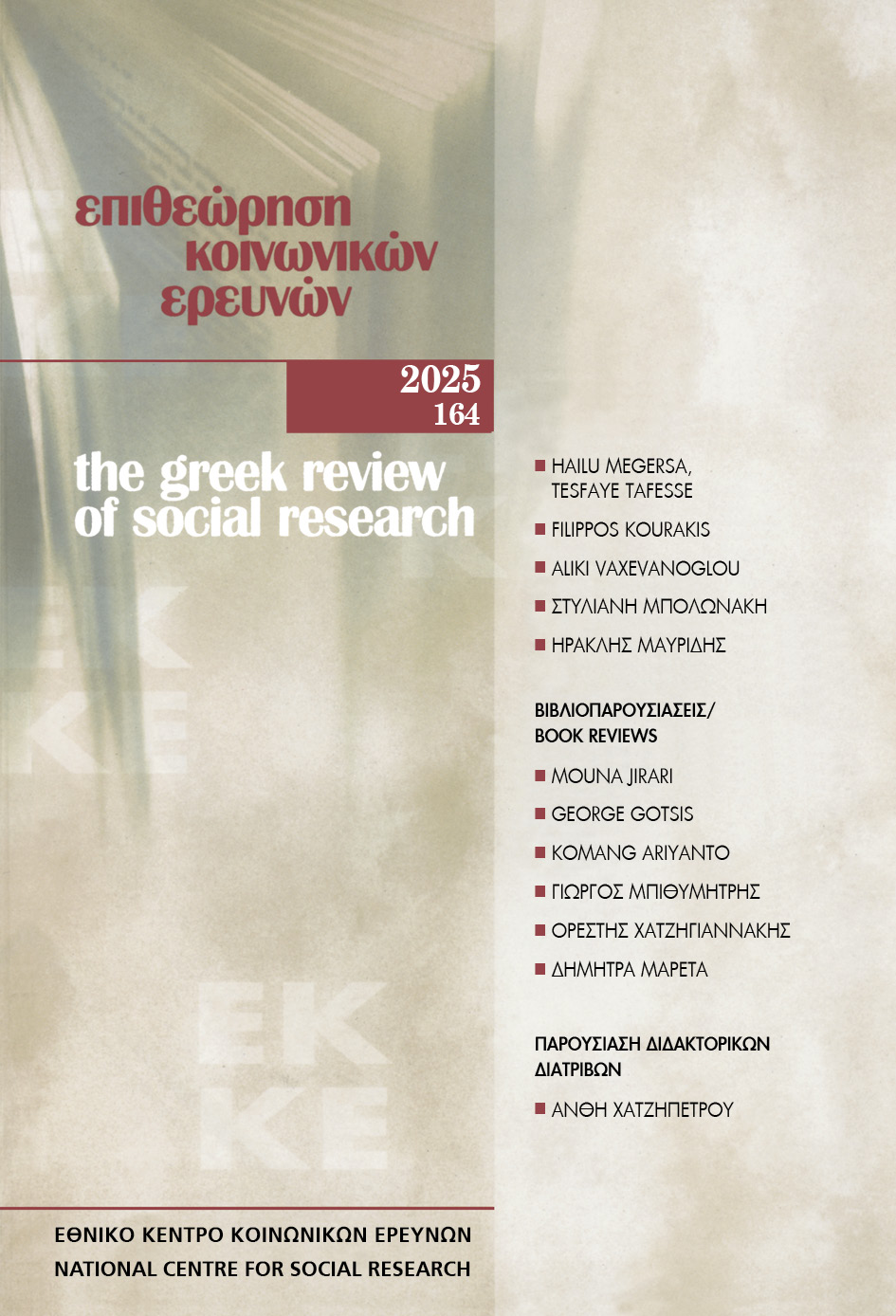Forms of ideological hegemony: The example of “informal labour” and the case of Greece

Abstract
Widely used in the social sciences, the concept of “informal labour” affects our perception of the social world. But is it a neutral and impartial concept? This study draws on extensive and unexploited archives of the International Labour Organization that established the concept of “informal labour”; it outlines the broader historical context of the concept's genesis, the process of its diffusion and highlights the main ideological obsession of the time: the imperative of economic development through massive industrialization. Focusing on the case of Greece, from the beginning of the 20th century until the 1980s, the study constantly contrasts the factual data and their ideological interpretation. The concept of “informal labour” is considered as a key indicator for approaching the complex phenomenon called ideological hegemony.
Article Details
- How to Cite
-
Vaxevanoglou, A. (2025). Forms of ideological hegemony: The example of “informal labour” and the case of Greece. The Greek Review of Social Research, 164, 57–89. https://doi.org/10.12681/grsr.40198
- Issue
- 2025: 164
- Section
- Articles

This work is licensed under a Creative Commons Attribution-NonCommercial 4.0 International License.
Authors who publish with this journal agree to the following terms:
- Authors retain copyright and grant the journal right of first publication with the work simultaneously licensed under a Creative Commons Attribution Non-Commercial License that allows others to share the work with an acknowledgement of the work's authorship and initial publication in this journal.
- Authors are able to enter into separate, additional contractual arrangements for the non-exclusive distribution of the journal's published version of the work (e.g. post it to an institutional repository or publish it in a book), with an acknowledgement of its initial publication in this journal.
- Authors are permitted and encouraged to post their work online (preferably in institutional repositories or on their website) prior to and during the submission process, as it can lead to productive exchanges, as well as earlier and greater citation of published work (See The Effect of Open Access).


